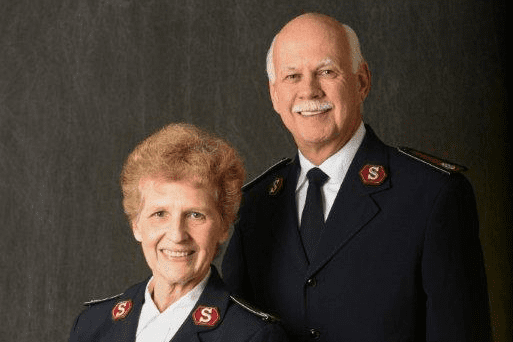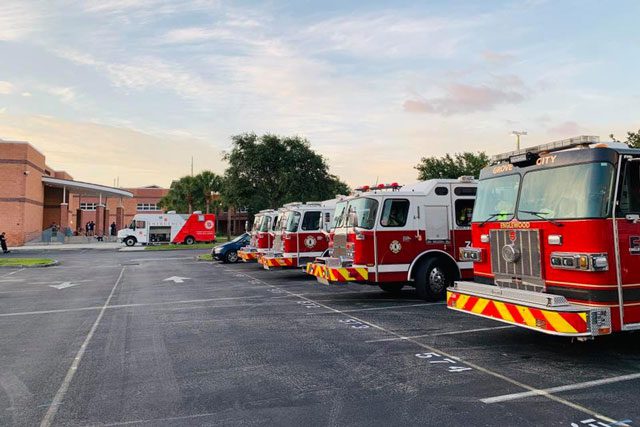BY GORDON BINGHAM –
TERRITORIAL SOCIAL SERVICES SECRETARY
 Since the mid-1960s, the partnership of government and non-profit organizations providing social services has grown steadily. The Salvation Army has been a significant part of that growth. Even before the sixties, the Army had contracted for government funds in specialized programs such as maternity homes and hospitals.
Since the mid-1960s, the partnership of government and non-profit organizations providing social services has grown steadily. The Salvation Army has been a significant part of that growth. Even before the sixties, the Army had contracted for government funds in specialized programs such as maternity homes and hospitals.
Both capital and operating dollars from government sources helped to develop an impressive network of these institutions across the country. Long before that, our first government grant came from the British parliament in 1890 when William Booth was given £100 to launch the “Darkest England” scheme.
It was the 1960s and 1970s that saw the concept of a government/non-profit partnership really open up: government had the financial resources; private social service organizations had the commitment, manpower, and know-how. It seemed a very natural partnership. While some will refer to the “failed programs of the sixties,” or to “government throwing dollars at the problems,” the truth is many of these efforts were highly successful and have rightly become an accepted part of our social structures.
The Older Americans Act of 1965 was one of the early programs in which The Salvation Army took a significant part. Seniors, once one of the most neglected segments of our population, can now find safe, affordable housing; nutrition services; activity centers and a host of supportive and protective interventions as a result of the Older Americans Act and other government legislation. The Salvation Army, having pioneered in areas such as senior camping, became an early partner in these programs, and continues so today.
SA one of largest providers
Over 30 senior residences made possible by government capital and operating funds, are administered by the Army in the West, making us one of the largest providers in this field. Five senior day care centers, a host of nutrition sites and a handful of specialized services, including transportation and legal counseling, round out Army programs for the elderly made possible by our government funding.
At the opposite end of the age spectrum, the Head Start program of the sixties proved the value of early childhood education and development. Head Start was part of a movement away from purely custodial childcare to more developmentally focused care.
 Govt. funds help support childcare
Govt. funds help support childcare
Government funds through direct grants and/or payments for service help support a growing number of Salvation Army childcare centers. These are a critical element of the welfare to work efforts, and an integral part of homeless programs.
In a few instances, the Army provides child and infant care as a supportive service in its addiction programs for women, making it possible for women to be in treatment with their children. Enabling mothers to retain custody of their children, rather than surrendering them to foster care, has been demonstrated to have a positive impact on recovery.
The Western Territory is partner to over 100 contracts for various kinds of childcare, from pre-school and after-school care to residential treatment. Our summer camp programs benefit as well from the government’s childcare food program.
While the programs of the Adult Rehabilitation Centers are the most visible of the territory’s efforts in the field of addiction, 15 other programs, including two Harbor Light centers, provide addiction treatment, largely funded through government contracts, and account for over $20 million in government funds. In some places, addiction funds are being supplemented by mental health funds in response to the growing phenomenon of persons being both addicted and mentally ill.
The Adult Rehabilitation Program in Las Vegas, Nev., has demonstrated the Army’s traditional work therapy program to be an effective element in the rehabilitation of the dually diagnosed person.
Addiction services
Nowhere is the Army’s spiritual ministry making a more impressive impact than in addiction services. In many of these centers, voluntary chapel programs attract over ninety percent of program residents, and account for significant numbers of first time seekers. For these persons, the 12-step programs have been used effectively as a model for Christian commitment and discipleship, and are a critical element in sustaining recovery.
Government contracts have also opened doors to new areas of service: In the year 2000, the Western Territory implemented 28 contracts related to HIV/AIDS programs; 26 related to domestic violence, 19 having to do with employment, and eight pertaining to corrections. The recently opened Alegria Residence in Los Angeles represents a remarkable partnership with government and the community, and will provide a one-of-a-kind resource for families with one or more members living with HIV/AIDS.
The greatest numbers of contracts fund the most basic of Army efforts: the alleviation of homelessness, hunger and other needs related to direct crisis assistance. The list of such efforts supported by government funds includes shelters, transitional living centers, food banks and food pantries, commodity distributions, soup kitchens, counseling and case management, and utility assistance.
The National Board Emergency Food and Shelter Program, commonly referred to as “FEMA,” since it is oversighted by that agency, has become a mainstay of a majority of the basic services of our corps. The “FEMA” program is a unique government/private partnership, in which federal funds are allocated directly to a consortium of 12 national organizations, including The Salvation Army, to be administered largely at the discretion of the national board.
$90 million plus in govt. support
The total dollars from government contracts in the Western Territory is very hard to pin down. An inventory compiled by the divisions for the year 2000 suggests the total to be nearly $90 million; it is likely greater than that. The role of these dollars in supporting Army services is vital.
In some instances, government funds provide nearly all of the operating costs of the program; in most, government dollars supplement other Salvation Army and community funds. In all, the Army brings to the partnership its trust and credibility in the community; a history of stable, effective management, and resources of property and manpower.
On the other side of this, the expansion of programs made possible by government funds, has itself enhanced the Army’s presence, credibility and trust in the communities it serves, increasing our capacity to raise funds for programs not supported by government funds, and opening up opportunities of service that would be otherwise unavailable.
Lt. Colonel Paul Bollwahn, our national social services consultant agrees, “This is not a time to withdraw from our partnership with government. Our history and our experience obligate us to continue to provide services that are vital to so many.”











